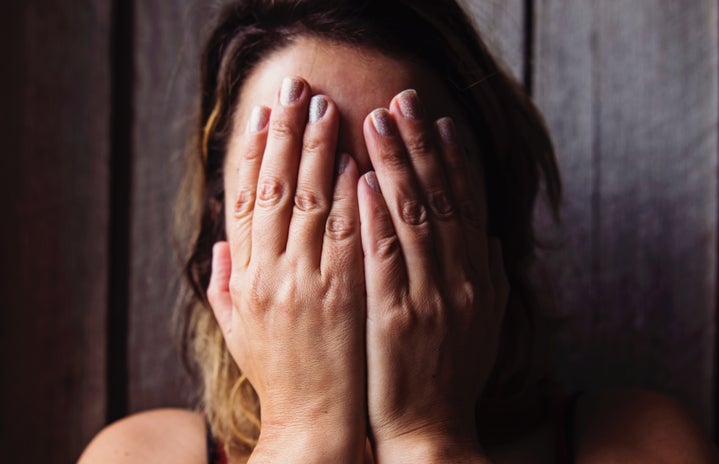I was catcalled for the first time last semester: a man slowed down his car next to me as I walked back from class, rolled down his window, proudly told me that I had “porn-star tits,” and drove away. I realized then that while the act itself was degrading and horrifying, what truly scared me was my own reaction, because as I dragged my feet back to my dorm, I felt proud. Proud that I was finally “worth” being catcalled.
I have always thought myself a feminist, but what sort of feminist would correlate objectification with achievement? What sort of feminist would find happiness in harrassment? I felt more disgusted with myself than I did with the man’s words — and yet, I couldn’t shake the feeling. Longer than I have been a feminist, I have thought that I was ugly and undesirable. I could never meet the standards of my peers and of society. I was dorky, unrefined, unattractive, and weird. From kindergarten to my senior year, I had never been asked out. I had never been genuinely flirted with. I was always chosen for the “kill” when my name came up in “kiss, marry, kill.”
I knew my place. I knew that as the girl nobody wanted, I had less value. In order to be seen as “more than just your looks,” you have to have those looks to begin with — and I tried so hard to. I dressed nicely. I wore makeup. So hyper-aware of how I presented, there was a point I couldn’t even relax in my own room because I was scared somebody from my school might somehow see me and realize I was not always trying to be beautiful. I wanted to be valued.

“Male fantasies, male fantasies, is everything run by male fantasies? Up on a pedestal or down on your knees, it’s all a male fantasy: that you’re strong enough to take what they dish out, or else too weak to do anything about it. Even pretending you aren’t catering to male fantasies is a male fantasy: pretending you’re unseen, pretending you have a life of your own, that you can wash your feet and comb your hair unconscious of the ever-present watcher peering through the keyhole, peering through the keyhole in your own head, if nowhere else. You are a woman with a man inside watching a woman. You are your own voyeur.”
Atwood describes the “male gaze” in this quote, a term coined by feminist thinker Laura Mulvey in the 1973 essay “Visual Pleasure and Narrative Cinema.” Essentially, the male gaze is the concept that women are positioned both in media and in society as objects to be looked at. Our value is then determined by our “to-be-looked-at-ness,” and we are characterized by the way our presentation is received by male counterparts. As Atwood explains, we are subject not just to the male gaze of the world around us, but also to the internalized male gaze we all hold within ourselves — that we are women with “a man inside watching a woman,” or, our “own voyeur[s].”
I felt bare beneath these words, my own behaviors so aptly summarized in just half of a paragraph taken from some book that I had never read. Conditioned by my own identification with “ugliness,” I had adopted a strict way of existing, so as to theoretically maximize the male validation that I was desperate for. I realized it wasn’t the men who were looking, though. It was me. I was subjugating myself.
I was a commodity by my own design. There was no man standing beside me, forcing me to put on eyeliner every morning before school. There was no watchman patrolling my house, ensuring that I sat up straight at my desk. The only one forcing myself to always appear desirable was myself.

Even now, I struggle with the internalized male gaze — I find myself checking if I am “still pretty” when I walk by reflective surfaces, but not for too long lest I be labelled a narcissist. As I learnt from Atwood, we are all victims — and even pretending we are not reaffirms, in of itself, that we are. Women are raised to view themselves as a man might. Women are taught that we are always to be looked at, rather than to look. When our merits are determined by our appearances, it is only natural that we each create a voyeur of ourselves. There is no catch-all cure — we are byproducts of the world we exist in, but recognizing the harmful ideologies that we all internalize is critical in learning to live without them.
As I sit and write this article, I am wearing sweatpants, my hair is in this oddly-shaped ponytail bun combination, and I know I do not look “beautiful” …but I am alright with that.



